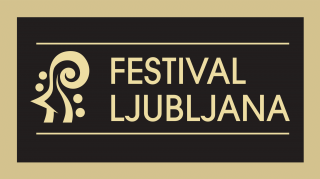Conductor and Gewandhauskapellmeister:
Riccardo Chailly
The Vienna Choral Society
Luba Organášová, soprano
Gerhild Romberger, mezzo-soprano
Roberto Sacca, tenor
René Pape, bass
Programme
L. van Beethoven: Symphony No. 9 in D Minor, Op. 125
This ensemble, boasting a centuries-old tradition, ranks by all means among the best on the old continent. Critics have evaluated the symbiosis between the orchestras and conductors as follows: »If we were to choose among the German orchestras with the best fusion between the ensemble and conductor to anchor in our memories – let’s say between the Berlin Philharmonic Orchestra with Simon Rattle, Bavarian Radio Orchestra with Mariss Jansons and Gewandhaus Orchestra with Chailly then the last one would certainly win,« wrote The Times in one of its flattering reviews of one of the oldest symphony orchestras in the world. »Special sound colour, virtuoso flexibility and incredible joy of playing, combined with a serious approach to music – all these are the features of the Gewnadhaus Orchestra that cannot be ignored. « Therefore the title “Brand of the Century” received by the orchestra in 2009 seemed quite self-evident.
Riccardo Chailly has just celebrated his 60th birthday. In the last eight years, the native of Milan and chief conductor of the Gewandhaus Orchestra bestowed upon this precious ensemble an indelible sound mark. Before that he was chief conductor of the Concertgebouw Orchestra in Amsterdam and chief guest conductor of the London Philharmonic Orchestra as well as chief conductor of the Berlin Radio Symphony Orchestra. And, Riccardo Chailly is by all means one of the most respected and sought-after conductors in the world.
In August 1909, Gustav Mahler wrote to his friend and conductor Bruno Walter the following: “I’ve been a good boy and just finished a new symphony. The work, as far as I know it, since I was writing like crazy until now and when I orchestrated the last sentence, I already forgot the first one, seems like a decent enrichment of my small family. I had it on the tip of my tongue for quite some time, and perhaps it is most similar to the Fourth (although it is completely different).” Quite interesting are also some statements made about the Mahler’s 9th Symphony by some important conductors. For Herbert von Karajan it was »a music coming from another world, coming from eternity«, and Otto Klemperer was convinced that the 9th Symphony is Mahler’s greatest achievement.
When Ludwig van Beethoven’s 9th Symphony was premiered for the public in Vienna, in 1824, no one even suspected that the composer set with this epoch-making work the new guidelines in this genre. It is a kind of caesura, as it is a first work, written in the form of a »cantata symphony«. In its last sentence the composer used besides the orchestra the choir and four soloists. He opted for the lyrics from Schiller’s poem An die Freude. In 1985, the main theme of this sentence was chosen for the European anthem as it illustrates such universal values as unity and diversity. In 2001, the manuscript of the Beethoven’s 9th Symphony, stored in the National Library in Berlin, became a part of the world heritage under the auspices of UNESCO.
The Vienna Choral Society was established by the Society of Friends of the Music in 1812. Its first artistic director became Antonio Salieri. In 1858, when the instrumental music was played in Vienna by the professional musicians for an already long period of time, the choir remained an amateur ensemble, operating as a branch of the Society of Friends of the Music. The ensemble, made up of selected singers, immediately won the attention of the audience and critique by its notable performances. The most respected composers – Brahms, Bruckner, Mahler and the other gladly offered the world premieres of their new works to this mush esteemed choir. Although it remained an amateur ensemble, the choir succeeded to maintain its prominence – thus giving only with Herbert von Karajan around 250 concerts in Europe, the United States of America and Japan. The choir also boasts quite an enviable number of recordings. Since 1991 the ensemble has been led by Johannes Prinz, and the singers from Vienna are performing with the most prominent conductors of our time. The choir has found its domicile in the Golden Hall of the Society of Friends of Music.
Tickets for the concert on 28th and 29th August: 114, 99, 56 €.


